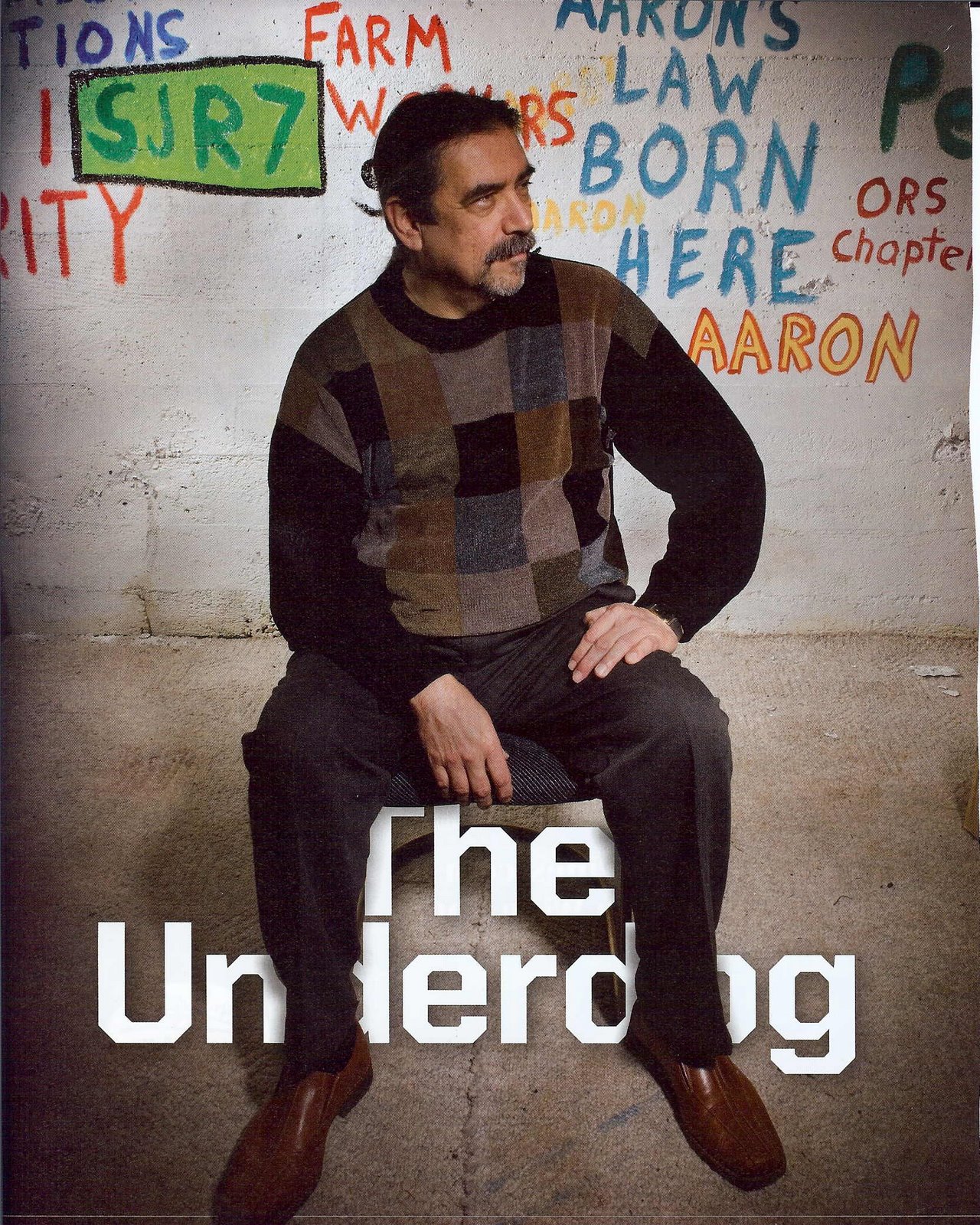By Sean Cruz
Portland, Oregon--
For more than two years now, an effort to rename a Portland street—just about any street—has imposed a purely arbitrary burden of stress and potential financial cost on a growing list of mostly unwilling neighborhoods.
The City is attempting to follow a “process” that has never been followed before, is still essentially ad hoc, and which defies logic and human comprehension.
If street renaming catches on in Portland, then the list of potential candidates and honorees is long indeed, enough to guarantee many decades of purposeless conflict and can-kicking through town.
The City of Portland “Planning” Commission, deciding that its role in the street-renaming “process” is to deliver bad-tasting medicine, chose to sacrifice a randomly-selected street on the Altar of Empty Gestures.
City officials, needing to weigh the political costs of renaming or not renaming 39th Avenue, are trying to figure out which way will cost the least votes, severely handicapped by the fact that they have been getting really bad advice all along.
The “honor” that some want to bestow on Cesar Chavez by renaming a street (almost any street) against the will of its residents is more like a gravestone in another form than it is anything else.
The entire citywide discussion over these past two years has referenced Cesar Chavez only in the most abstract of terms: He was a civil rights leader something something; farmworker something something; grape boycott; something about lettuce; something something….
The Portland discussion centers on the past, and a shrunken understanding of the past at that; nothing about the present living and working conditions of farmworkers; nothing about the future living and working conditions of farmworkers; nothing about what needs to happen if you really want to honor Cesar Chavez, amigo….
The Portland discussion boils down to creating a grave marker in the form of a series of street signs unconnected to any thing or any one or any idea that is related to either Cesar Chavez or the human rights abuses and discrimination issues for which he sacrificed his health and shortened his life.
These issues persist today, as Bob Herbert’s “New York State of Shame” commentary appearing in the New York Times makes clear, and yet in Portland the public discussion regarding farmworker issues does not go beyond renaming a stretch of asphalt.
The state of New York is home to a large duck liver pate industry, where farm workers are required to work 12 hours a day, seven days a week, force-feeding ducks. By statute, farm workers in the state of New York are specifically excluded from the rights to a day off or to overtime pay for overtime work.
Worse, a characteristic of the duck liver industry is that each worker is assigned the same several hundred ducks to force-feed for 22 consecutive days. They cannot have another worker substitute so someone can get a day off “because it upsets the ducks.”
Read the full article here:
http://www.nytimes.com/2009/06/09/opinion/09herbert.html?emc=eta1
Farmworkers across the country remain mostly invisible. They and their families endure unthinkable living and working conditions that the rest of us are protected from in our respective state statutes.
In the state of Oregon, farmworkers are specifically excluded from the right to overtime pay for overtime work, same as New York. In Oregon, farmworkers have only had the right to meal and rest breaks since 2004.
Opponents to granting the right to meal and rest breaks in Oregon claimed that their mostly Mexican farmworkers didn’t want the breaks; they wanted to work right on through, make more money, the same claim that those opposed to granting the right to a day off in New York claim: “This notion that they need to rest is completely futile. They don’t like to rest. They want to work seven days.”
No discussion of these issues has taken place anywhere in Oregon during the past two years, or before that for that matter, and yet there is talk of “honoring” Cesar Chavez in the City of Portland....
Unless the Portland City Council can connect the public discussion to the real world of farm workers and take some kind of affirmative step, this entire ordeal is about little more than erecting a grave marker, and a hollow memorial at that.
New York State of Shame
By Bob Herbert, New York Times
The building housing the ducks in this lush region of the Catskills in upstate Sullivan County was huge, a cross between a gigantic Quonset hut and an airplane hangar. The ducks, tens of thousands of them ready to be slaughtered for foie gras, were stuffed and listless in their pens. It was a very weird scene. Genetically unable to quack, the ducks moved very little and made hardly any noise.
Animal-rights advocates have made a big deal about the way the ducks are force-fed to produce the enormously swollen livers from which the foie gras is made. But I’ve been looking at the plight of the underpaid, overworked and often gruesomely exploited farmworkers who feed and otherwise care for the ducks.
Their lives are hard.
Each feeder, for example, is responsible for feeding 200 to 300 (or more) ducks — individually — three times a day. The feeder holds a duck between his or her knees, inserts a tube down the duck’s throat, and uses a motorized funnel to force the feed into the bird. Then on to the next duck, hour after hour, day after day, week after week.
The routine is brutal and not very sanitary. Each feeding takes about four hours and once the birds are assigned a feeder, no one else can be substituted during the 22-day force-feeding period that leads up to the slaughter. Substituting a feeder would upset the ducks, according to the owners of Hudson Valley Foie Gras, which operates the farm.
Not only do the feeders get no days off during that long stretch, and no overtime for any of the long hours, but they get very little time even to sleep each day. The feeding schedule for the ducks must be rigidly observed.
When I asked one of the owners, Izzy Yanay, about the lack of a day of rest, he said of the workers: “This notion that they need to rest is completely futile. They don’t like to rest. They want to work seven days.”
Covering this story has been like stepping back in time. Farmworkers in New York do not have the same legal rights and protections that other workers have, and the state’s multibillion-dollar agriculture industry has taken full advantage of that. The workers have no right to a day off or overtime pay. They don’t get any paid vacation or sick days. When I asked one worker if he knew of anyone who had a retirement plan, he laughed and laughed.
To understand how it’s possible to treat farmworkers in New York this way you have to look back to the 1930s when President Franklin Roosevelt was trying to get Congress to pass the Fair Labor Standards Act to provide basic wage and hour protections for workers. Among the opponents were segregationist congressmen and senators who were outraged that the protections would apply to blacks as well as whites.
Most agricultural and domestic workers were black, and the legislation was not passed until those two categories of workers were excluded. New York State lawmakers, under heavy and sustained pressure from the agriculture lobby, have similarly exempted farmworkers (the vast majority of whom are now Latino) from most state labor law protections.
There was a good chance — right up until Monday, when the State Senate went through a sudden and cataclysmic change from Democratic to Republican control — that something might be done about this legislatively. On Monday evening, the Assembly passed (and Gov. David Paterson has promised to sign) a bill extending much-needed labor protections to farmworkers, including the right to at least one day of rest per week and, more important, the right to bargain collectively.
Republican senators were split on the bill, however, and the New York Farm Bureau, the lead lobbying agency for the agriculture industry, is furiously opposed to passage. With the upheaval in the Senate, the fate of the bill, called the Farmworkers Fair Labor Practices Act, is unknown.
A major supporter of the bill, the Rev. Richard Witt, executive director of the Rural and Migrant Ministry of New York, said the Senate shift would have no effect on the campaign for passage of the bill. Another supporter, Kerry Kennedy, founder of the Robert F. Kennedy Center for Justice and Human Rights, also said she will continue to push hard for passage.
“It’s shocking that these conditions could exist in New York State,” Ms. Kennedy said. “We talked to a worker who had not had a day off in 10 years.”
That is not an argument that carries much weight with the Farm Bureau.
Sounding like an echo of Mr. Yanay, the bureau’s spokesman, Peter Gregg said, “They don’t want days off. The farmworkers want to work. They came here to make money.”
http://www.nytimes.com/2009/06/09/opinion/09herbert.html?emc=eta1
Subscribe to:
Post Comments (Atom)






No comments:
Post a Comment